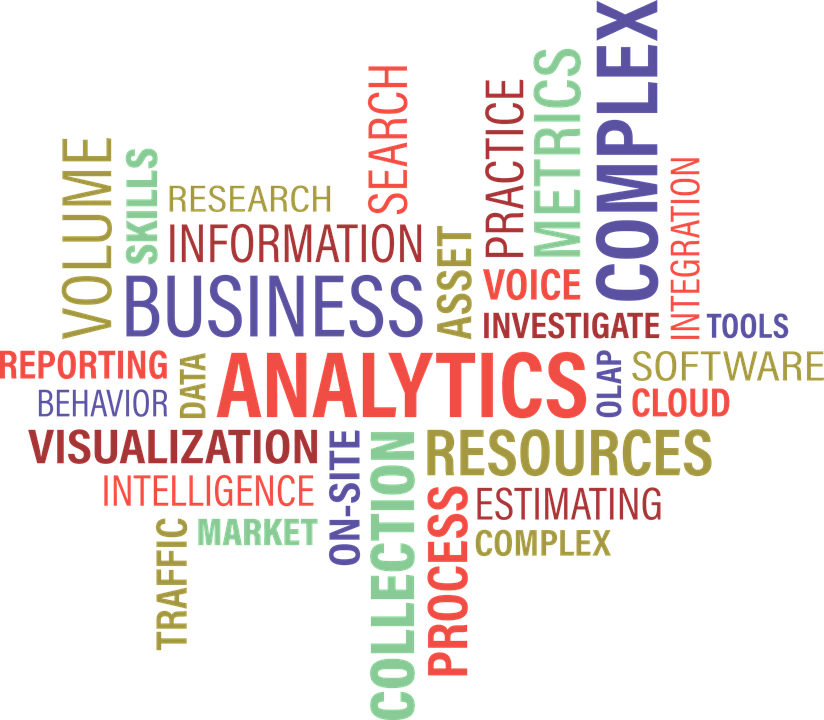Foundations for Data & Analytics
Launch your career in Business and Data Analytics…

Get ready for your career journey in Data & Analytics!
How do businesses analyze data to generate new insights? How can technology and statistical methods enable data-driven decision making? How can machine-learning detect patterns in data to predict future behavior? Foundations for Data and Analytics is an entry-level series of live online short courses to get you started answering these questions and more. No coding experience required.
This flexible modular program enables learners to select one or more individual 3-hour courses to build their skills in specific areas of interest. Students earn a digital Badge/Certificate in “Foundations for Data & Analytics” upon completion of a minimum of 10 courses within 12 months. If you need more guidance on which courses to register, check out the recommended pathways designed by UW faculty.
Program Highlights
100% LIVE Online Instruction
3-hour courses delivered live on weekends and weekday evenings. Review the class recording and practice what you’ve learned at your own pace thereafter.
Virtual Analytics Lab
Use our cutting-edge technology tools and cloud resources to do your course work.
Select a Pre-designed Pathway or Create your Own Pathway
Select one of our pre-designed Pathways or choose individual courses to build your skills in one or more areas.
Earn a Certificate Digital Badge
Complete 10 courses* and earn a shareable and verifiable certificate digital badge to demonstrate your achievement.
Taught by UW Faculty and Industry Professionals
Learn from thought leaders in academia and from accomplished practitioners in industry.
High ROI
$159** per course (regular price)
$119** per course (discounted price for eligible students)
(plus 2.5% registration fee)
*To earn the Certificate, students must complete a minimum of 10 courses within 12 months. Completion of a course requires a score of 80% or better on the course post-module quiz or assignment. Students will have one week after the course is delivered to complete the post-module quiz or assignment.
**2.5% registration fee will be added to the price at the checkout.
R1
R is a programming language that is used to store, analyze and visualize large amounts of data. R is used to create:
- statistical models that will reveal patterns
- mathematical models that lead to future projections
- visualizations to present a large amount of data in an easy-to-read format
Beginner R1 will expose students to the underlying concepts of “R”. Key topics include the RStudio IDE, R fundamentals, installing and using packages, working with vectors and data frames, and running basic models. After completing this module, participants will learn to work with R environment, conduct basic of programming in R, and use the Tidyverse for data manipulation.
Key Topics
- RStudio IDE
- Working with packages
- Conditional statements
- Vectors and data frames
- Loading Data
Specific Objectives After completing this module, participants should:
- Learn to work with R using RStudio
- Learn to install packages and work will libraries in R
- Learn the basic of programming in R
- Learn tidyverse approaches to data manipulation
R2
This course will continue participants exposure to R focusing on visualizing, summarizing, tidying data. After completing this module, participants will be familiar with generating graphs with ggplot2 and aggregating, joining, and reshaping data using dplyr and tidyr.
Key Topics
- Visualization with ggplot2
- Summarizing and joining with dplyr
- Reshaping with tidyr
Specific Objectives After completing this module, participants should:
- Learn to summarize (aggregate) and reshape data
- Learn to join data frames (tables)
- Learn to create visualizations (graphs)
Python 1
This course will expose students to the underlying concepts of Python – used for a Machine learning and data analytics applications. Key topics include Python IDE (Jupyter Notebook), Python programming basics, lists, functions and python libraries. After completing this module, participants will learn basic programming in Python, work with key Python data structures, learn to code functions in Python, and work with a Python library used for working with arrays- NumPy.
Key Topics
- Jupyter Notebooks IDE
- Python programming Basics -control structures
- Lists
- Functions
- NumPy
Specific Objectives After completing this module, participants should:
- Learn how to code in Python in a Jupyter Notebook (IDE)
- Work with key Python data structures
- Learn to code functions in Python
- Work with a Python library – NumPy
Python 2
This course will continue participants’ exposure to Python. Key topics of this module will include additional Python libraries, Python logical statements, control flow, and an introduction to Machine learning in Python. After completing this module, participants will have learned which are fundamental Python libraries, how to code control flow and set up logical statements and use a machine learning environment.
Key Topics
- Common Python libraries
- Python program logic and control flow
- Introduction to Machine learning in Python
Specific Objectives After completing this module, participants should:
- Learn which are fundamental Python libraries
- Learn to code control flow and set up logical statements
- Learn to use a machine learning environment
SQL
SQL, or structured query language, is a programming language used to query, organize, and interact with the data stored in databases. SQL is widely used in all major relational database management systems (RDBMS) software tools and is utilized across industries. In this course, you will learn how to use SQL for data input, manipulation, and retrieval.
This course will cover structured query language (SQL).
Key Topics
- SQL
- Data Input
- Data Manipulation
- Data Retrieval
Specific Objectives After completing this module, participants should:
- Learn fundamentals of structured query language
- Learn how to obtain information from a database with SQL
- Update database content with SQL and transaction handling
- Retrieve data with filter conditions and from multiple tables using various types of join
Math, Probability and Statistics 1
The basis of most data analytics is mathematical models. Beginner Math, Probability, and Statistics 1-2 modules will introduce you to basic mathematics that underlies the math concepts, probability functions, and statistical analysis that allow data analytics to work. It will teach you how people use, and misuse, statistics, how to create useful graphs with data, and introduce a simple model of data prediction.
Beginner Math, Probability, and Statistics 1 will expose students to the underlying concepts of probability, statistics, and graphing necessary for simple data reports and data visualizations. It also serves as background introduction for future MSBA classes.
Key Topics
- Statistical Data Visualization
- Statistical Data Summarization
Specific Objectives After completing this module, participants should:
- Prepare and interpret visual data representations
- Define and interpret different data summarization techniques
- Prepare and interpret a data summarization report in R
- Prepare and interpret data visualization in R
Math, Probability and Statistics 2
This course presents elementary topics in data analysis through regression.
Key Topics
- Probability
- Confidence Intervals
- Hypothesis Testing
- Simple OLS Regression
Specific Objectives After completing this module, participants should:
- Explain the difference between different types of probability distributions
- Calculate and interpret the confidence interval of different data types
- Create and interpret different types of hypothesis tests
- Prepare data for OLS regression analysis in R
- Describe the different assumptions of OLS regression
- Perform a simple OLS regression in R
- Interpret and present the results of simple OLS regression
Business Fundamentals for Analytics
For those without a business background, this module will provide you with a basic understanding of business concepts. It introduces you to how data analytics is used by marketing, management, and finance professionals.
This course provides students a grounding in the basic terminology and theories of business, including accounting, finance, marketing, and operations management.
Key Topics
- Goals of Business
- Economics – Supply and Demand
- Marketing – Branding and market strategies
- Financial Accounting – Income statement, balance sheet, statement of cash flows
- Finance – Time value of money, risk-return tradeoff, cost of capital, IRR
- Management – Theories and applications
Specific Objectives After completing this module, participants should:
- Be able to understand the basic economic theories of supply and demand and their applications to business
- Describe different types of marketing theories and their translation to strategy
- Understand the six fundamental principles of finance
- Understand the purpose for accounting laws
- Be able to interpret and use basic accounting tools such as income statements and balance sheets
- Describe the role of management in business
Data, Big Data Management & Cloud Computing
This course will give you an introductory level overview of data infrastructure including relational and non-relational databases. This module also focuses on how big data is different than traditional data workloads and how cloud solutions address the challenges of Big Data. Additionally, the module includes a hands-on activity that will walk students through the process of deploying a cloud database and accessing and importing data.
Key Topics
- Database
- Data Warehousing
- Big Data
- ETL
- OLTP vs OLAP
- On-premise vs cloud solutions
- Data Management in the cloud
Specific Objectives After completing this module, participants should:
- Understand the fundamentals of transactional (OLTP) and decision support systems (OLAP)
- Learn the fundamentals of data and database management
- Learn how to create a database, and how to access it
- Learn how database, data warehousing, data lakes, big data, and business intelligence are connected, and how they are used to support smart decision making
- Learn the fundamentals of Cloud Technology and cloud services used for Data Management.
Data Modeling
Data modeling is a tool to conceptually describe the data and relationships between data. We will learn how to create simple diagrams to describe and link complex data, showing the types of data used and how it can be organized.
This course will cover conceptual, logical and physical database modeling, entity relationship diagrams, relational database modeling, and dimensional database modeling.
Key Topics
- Data modeling
- Entity relationship diagrams
- Relational modeling
- Dimensional modeling
Specific Objectives After completing this module, participants should:
- Understand what is data modeling
- Create a conceptual, logical and physical database model
- Understand fundamentals of relational vs. dimensional modeling, and how they are being used
- Hands-on exercise to design a data model with various data modeling tools
Excel for Data Analytics
This beginner class will teach you how to create formulas, reference cells, create charts and manipulate data. Additionally, you will be introduced to a powerful mathematical modeling method that allows you to identify optimal choices with the click of a button.
Key Topics
- Data Entry and Manipulation in Excel
- Chart Creation
- Linear Programming
Specific Objectives After completing this module, participants should:
- Enter Data into Excel in multiple ways
- Create and interpret formulas
- Create and interpret charts
- Prepare Linear Programming problems
- Interpret Linear Programming Problems
Data Visualization
This course will cover the basics of the art and science of data visualization and how to create insightful dashboards using Power BI via a case study. After completing this module, participants should be able to identify and create most appropriate diagrams for a given dataset and business purpose, which contributes to better data exploration, more informed decision making and more compelling communications.
Key Topics
- Best practices and pitfalls
- Graph types
- Power BI capabilities
- Dashboard creation in Power BI
Specific Objectives After completing this module, participants should:
- Utilize data visualization principles and avoid common mistakes
- Be aware of different graph types and identify the most effective one given a business context
- Create and publish Power BI dashboards
- Customize dashboards in Power BI
Sample list of software that will be used:
- Power BI
- Microsoft Excel
Predictive Analytics – Data Mining & Machine Learning
Machine learning is the use of computer algorithms, or rules, to automatically detect patterns. Data mining takes machine learning a step further and uses those patterns to predict future behavior within the available data. These can be used for data you have previous conceptual knowledge about, or data that is completely new, to discover new patterns.
This course will expose students to the underlying concepts of machine learning pipelines. Key topics include predictive modeling, the split/train/score/evaluate framework, and basic data cleaning and preparation. After completing this module, participants will be able to generate their own machine learning web service which can be called from a Microsoft Excel spreadsheet.
Key Topics
- Predictive modeling
- Split/train/score/evaluate process
- Cleaning missing data
- Deploying machine learning
Specific Objectives After completing this module, participants should:
- Generate their own machine learning pipelines
- Choose the best algorithm for their data
- Choose the best features to predict an outcome
- Create machine learning web services
Business Intelligence, Analytics and Data Science
Now you have the data, let’s transform it into actionable insights to inform business decisions. Learn how to define goals and objectives, and to analyze data ethically and in a socially responsible way.
This course will introduce, and expose students to the fundamentals of business intelligence, business analytics and data science in the era of big data and cloud computing for digital transformation.
Key Topics
- Overview of business intelligence, data analytics and data science
- Competing on data analytics
- How to map goals and objectives to tactics and metrics with data analytics
- Overview of descriptive, diagnostic and predictive analytics
- Career pathways in data analytics
- Future trends in data analytics, e.g. ML, AI, IA, IoT, smart services
Specific Objectives After completing this module, participants should:
- Evaluate the concepts with innovative uses of data, information, knowledge and analytics to support managerial decision-making
- Analyze fundamentals of OLTP vs. OLAP solutions
- Synthesize the directions in which BA is evolving. Which are the cutting-edge practices and solutions (e.g. mobile, social, cloud intelligence) within BA through which competitive advantage can be built?
- Evaluate the foundations of analytics with different levels of analytics, such as graphs, standard reporting, ad hoc reports, score cards, key performance indicators, dashboards, alerts, statistical analysis, forecasting, predictive modeling and data/text mining.
- Recognize and analyze ethical dilemmas and social responsibilities.
Agile Project Management for Data & Analytics
In this course, you will learn the dynamic project management methodology known as Agile. Agile Project Management is a unique, dynamic method of leading a project that allows the flexibility required to tackle any IT project in which end-user demands are constantly evolving. Topics include team member roles and responsibilities, time, cost, and project schedule management, and methods for successfully handling changes throughout the project.
Key Topics
- A brief history, and origin of agile management
- Differences between waterfall and agile projects
- The types of projects that are best suited for agile projects
- The various roles involved on agile projects
- Agile time, cost, and schedule management with Scrum and Kanban
- Implementing Agile PM for data analytics projects
Specific Objectives After completing this module, participants should:
- Be able to understand the artifacts and documentation associated with agile projects
- Understand the roles, and responsibilities of agile team members
- Know what user stories are, and how to develop them
- Understand the tracking, and reporting requirements of an agile project
- Understand how to deal with changes on agile projects
Do you need more guidance on which courses to register?
See the pathways recommended by our faculty.
*For the weekend classes, registration closes at 11:59 p.m. the Thursday prior to the start of class.
For Tuesday classes, registration closes at 11:59 p.m. the Sunday prior to the start of class.
For Wednesday classes, registration closes at 11:59 p.m. the Monday prior to the start of class.
For Thursday classes, registration closes at 11:59 p.m. the Tuesday prior to the start of class.
Join our email list to receive communications about upcoming programs.
Instructors

Charles Lanfear

Sergio Davalos

Haluk Demirkan

Margo Bergman

Mark Keith

Pelin Muharremoglu

Michael Turek

Daniel Soper
What People Are Saying
“Completing the Masters in Business Analytics program at the University of Washington Tacoma has been an incredible journey that has significantly enhanced my skills and opened doors to exciting career opportunities in the field of data analytics.
When I decided to pursue this, I carefully researched various programs, and UW Tacoma stood out as the ideal choice. From the moment I joined the program, I was impressed by the comprehensive curriculum and the expertise of the faculty members who created a stimulating learning environment that fostered growth and development.
Throughout the program, I was exposed to a wide range of subjects and concepts that are highly relevant in the field of data analytics. From foundational courses in statistical analysis and data visualization to advanced topics like machine learning and predictive modeling, the curriculum provided a well-rounded education that prepared me for the challenges of the industry.
One aspect of the program that truly stood out was the emphasis on practical application. The program incorporated real-world projects and case studies, allowing me to apply the theoretical knowledge to solve complex business problems. This hands-on experience was invaluable in honing my analytical skills and building confidence in my ability to tackle real-world challenges.”
“With eight years of prior experience in data analytics, I sought the next milestone in my career trajectory. The University of Washington Tacoma Master of Science in Business Analytics (MSBA) program emerged as the ideal choice, as it seamlessly aligned with my full-time position and offered a comprehensive curriculum completed within a single year. The program’s emphasis on Data Mining and Text Mining courses resonated deeply with me, as I found immense value in acquiring expertise in these areas. Moreover, the year-long real-world project, which enabled the practical application of the acquired skill sets, further solidified my appreciation for the program.
Following the successful completion of the MSBA program, I transitioned into a new role as a Data Scientist. This professional opportunity allowed me to effectively leverage the wide range of skills and techniques acquired during my tenure in the program.“
“The MS Business Analytics (MSBA) program has been an incredible learning experience for me. With a background in Electronics and Communication Engineering and a Master’s degree in Data Analytics, this program provided me with the ideal combination of business acumen and analytical skills, preparing me for success in the dynamic field of data-driven decision-making. The MSBA program is a transformative journey that bridges the gap between my technical expertise and the strategic application of data analytics in business.”
Do you need more information?

